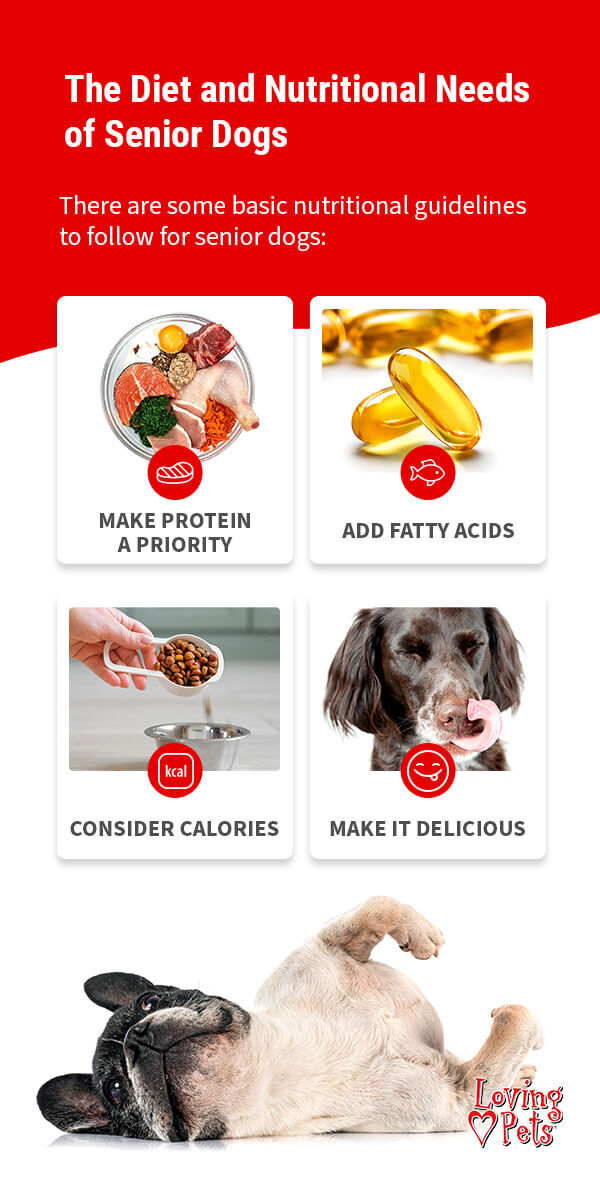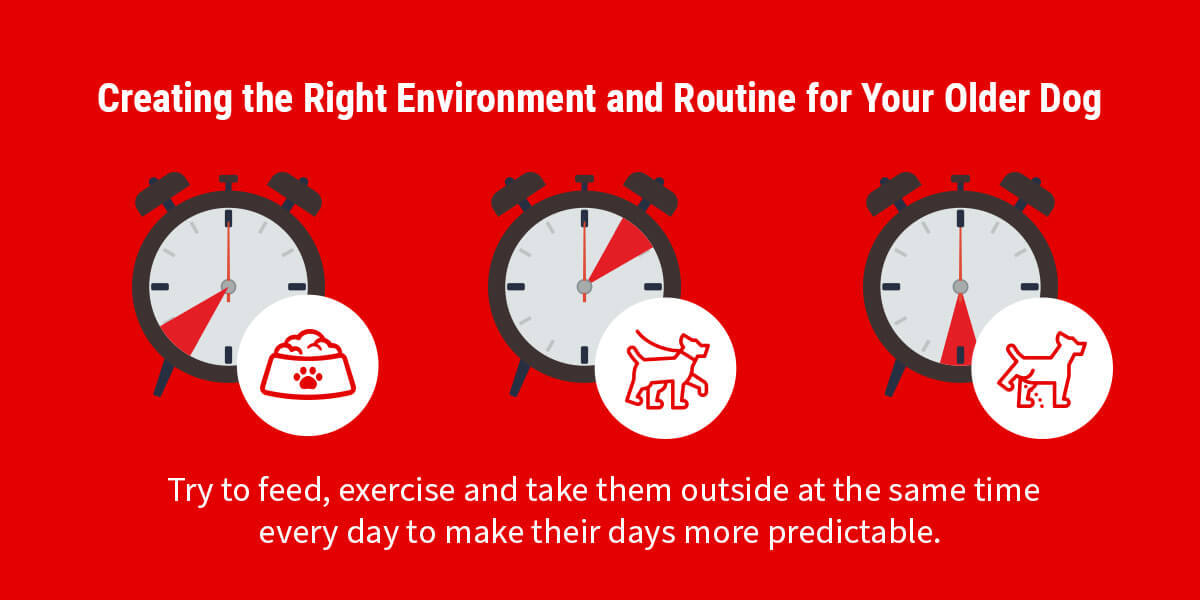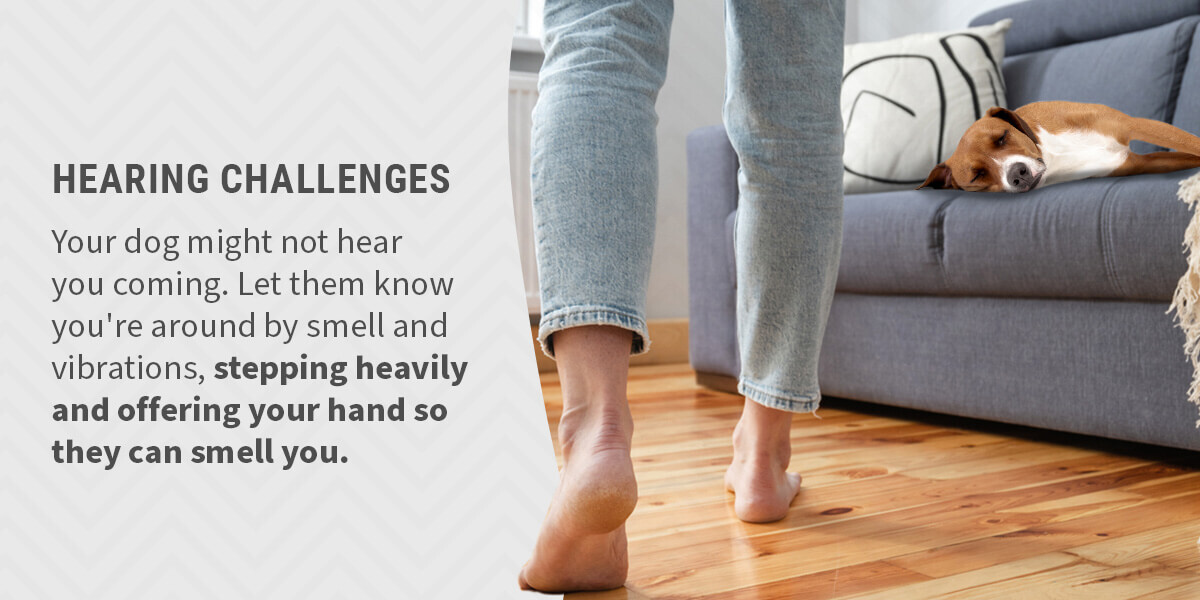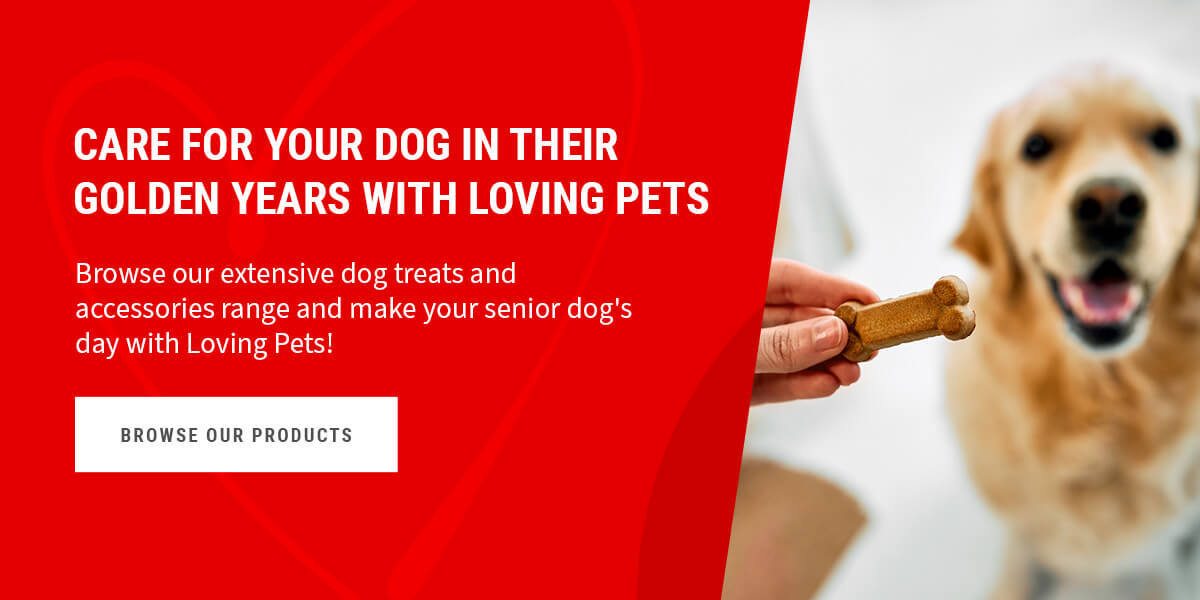Senior Dog Care: Keeping Your Aging Companion Happy and Healthy
Caring for senior dogs is part of every pet owner's life. Of the 78 million pet dogs in the U.S., 30%-40% are seven years old or older. Like us, dogs need extra care as they age, and as an owner, you want to give them the best quality of life. As their care and attention needs change, we may want to adapt our homes, change their diets and spend more time with them.
Senior dogs often face various challenges, from reduced mobility to anxiety. Getting valuable insights and practical tips during this phase of your dog's life can greatly impact both of you. Let's navigate the complexities of caring for your aging dog and enhancing their life during their golden years.
Understanding Old Dog Habits and Behaviors
A senior dog's age depends on their breed and size. Large breeds like German shepherds or labradors are considered seniors from around 7 years old. Small and toy breeds like chihuahuas and Yorkshire terriers are around 8 or 9 years old before they're deemed senior. Depending on your dog, you can expect to see behavior changes when they reach an advanced age.
Senior dog anxiety can be a common challenge as they age. Many dogs become more anxious, which can be a sign of canine cognitive dysfunction, a condition similar to human Alzheimer's disease. Your dog may also experience challenges like memory loss and disorientation. Here are some common behavior changes to keep in mind:
- Confusion: Your dog could appear lost in familiar spaces or get stuck navigating around or over obstacles.
- Overdependence: Your dog might become clingy or needy, preferring to be around you all the time.
- Low energy: It's natural for your dog to spend more time resting and sleeping as they age.
- Appetite issues: Your dog may go off their food or eat small amounts at a time.
Your dog could also exhibit altered sleeping patterns, such as becoming restless at night and sleeping more during the day. Sensitivity to loud noises or sudden movements is also common and can contribute to their anxiety, so providing a calm and stable environment can alleviate some of their stress. Despite any behavior changes, there is plenty you can do to ensure your senior dog lives happily and healthily in their golden years.
The Diet and Nutritional Needs of Senior Dogs
Keeping a happy and healthy senior dog starts with an optimal diet. Like humans, dogs' nutritional needs change as they age, and much of the advice you'll find out there is conflicting. Your dietary choices depend on your dog and your goals. For example, many dog breeds are prone to obesity as they age. If your dog is one of these, their diet will look entirely different for a dog that's losing weight. However, there are some basic nutritional guidelines to follow for senior dogs:

- Make protein a priority: Many older dogs benefit from a high-protein diet to promote lean muscle mass. As dogs age, they often stop synthesizing as much protein on their own, which means adding more to their diet.
- Add fatty acids: If your dog has arthritis or mobility challenges, supplementing their diet with fatty acids can help. To be effective, your dog needs 1-2 capsules of fish oil supplement per 10 pounds of body weight.
- Consider calories: As dogs age, they become less physically active, which means they have lower energy requirements. If you feed the same amount as when they were younger, they might run a higher risk of developing obesity. Weigh your dog often to monitor any slow weight gain and adjust their food accordingly.
- Make it delicious: Some older dogs' senses diminish, and if they can't smell their food, they may not have the same appetite. Look for foods with a strong scent to stimulate their appetite.
Depending on your dog's needs, you may need to transition them to a new diet. Consult your veterinarian about changing foods.
Treats for Senior Dogs
In addition to your dog's regular diet, you can liven up their meals with some senior dog treats to promote their health and well-being. Supplements like glucosamine and chondroitin sulfate can support mobility and joint health. Even blueberries help with the effects of aging in the brain, making them an excellent snack for your senior friend. Regular treats can also help with bad breath, a common challenge for some senior dogs.
You can play hide-and-seek with treats, build puzzles and engage in other mental stimulation activities. Look for soft and palatable treats for your senior dog to keep them happy and eager for more.
Healthy Habits for Aging Dogs — Exercise and Mental Stimulation
One of the most critical wellness tips for senior dogs is to give them plenty of exercise. Of course, your dog's stamina and mobility will decrease, so you need to adjust their exercise routine in relation to their overall health. For example, you can turn jogs and hikes into slow, leisurely walks with more sniffing time.
Any low-impact exercise is beneficial for a senior dog. You can even take your dog swimming in the warmer months if they enjoy it. If you exercise your dog outdoors, be mindful of the weather, as cold or wet conditions may be uncomfortable for stiff joints. Always monitor your dog carefully during exercise and dial things back if they show signs of fatigue.
Physical exercise is only one element of healthy habits. Keep your dog mentally stimulated with puzzle games, training and visiting new places. Most senior dogs love walks where they can explore at their own pace and enjoy every scent. Old dogs can learn new tricks, and trick training can help you connect with your dog and keep their mind sharp. Car rides and play dates with other senior dogs are also fun ways to pass the time.
Creating the Right Environment and Routine for Your Older Dog

As your dog ages, they get anxious, especially if they can no longer do things they used to love. While all dogs benefit from a routine, seniors love it even more. A daily routine gives them familiarity and makes them feel secure. Try to feed, exercise and take them outside at the same time every day to make their days more predictable.
You can also change your dog's environment to prioritize creature comforts in their golden years. Your modifications depend on your dog's mobility and behavior, but they can include:
- Installing ramps: Dogs, especially those with arthritis or mobility issues, may encounter challenges on the stairs. You can install ramps to help them navigate these areas or move their sleeping area to eliminate steps altogether. If your dog sleeps on the bed or couch, you can also install ramps in those areas to avoid any jumping.
- Cover slippery surfaces: As your older dog's mobility deteriorates, they may struggle with their balance, making slippery floors challenging to navigate. Use rugs or mats to provide more grip.
- Raise food and water bowls: Some senior dogs, especially large breeds, find bending down and reaching their food and water challenging. To make them easier to access, place their bowls on a platform.
- Upgrade the sleeping area: Hard floors are unforgiving and can exacerbate arthritis or stiffness. Adding thick, high-quality beds around the house can help your dog get comfortable for each nap. If your dog has arthritis, you can buy orthopedic beds for extra joint support. Consider a heating pad or heated bed to soothe aches and pains.
- Watch the weather: Senior dogs can't tolerate the same temperatures as younger dogs. Try a coat or sweater in the winter and a fan during summer. Limit their time outside during extreme conditions.
- Add extra grooming sessions: Your dog might only be able to reach some areas of their body, and extra grooming sessions can prevent matting and discomfort. As your dog is less active, their nails wear down slower, which means extra trims. Grooming sessions are a good time to check for lumps or bumps, which are more common in older dogs.
Managing Age-Related Health Issues
As a loving dog owner, you want to prevent health issues before they arise. Being proactive can go a long way to helping your dog feel good in their senior years. Watch out for the following issues so you can take steps to limit their effects:
Dental Changes
The threat of dental disease is more prominent as your dog ages. Look for tartar buildup, gingivitis and tooth decay, as these are early signs of dental issues that could affect their daily life. If they lose their appetite, the teeth are the first thing to check. Check your dog's gyms regularly for bleeding, loose teeth and bad breath.
If your dog will allow you to brush their teeth, try to do so as part of your daily routine. The more often you can look at their teeth, the better they will fare in the long term. If you see anything unusual, consult your veterinarian.
Vision Loss
Loss of vision is among the most common challenges for older dogs. They can lose their vision for many reasons, but luckily, they're less reliant on their vision than humans and highly adaptable. Look for signs like clinginess, an inability to find things or tripping over obstacles.
Keep your furniture in the same place. Your dog knows where everything in their space is — if something moves, they may get disoriented and run into it. You can also help them navigate their space with textures. For example, a texturized rug at the top and bottom of the stairs lets them know what's coming up so they can avoid falling.
Hearing Challenges
Many dogs lose some or all of their hearing as they age. Your dog may start ignoring commands or displaying no response when you do something exciting, like rattling a treat bag. It can be challenging to communicate at first, but adding hand gestures is highly effective.

Your dog might not hear you coming — if you touch them unexpectedly, they may become fearful or anxious. Let them know you're around by smell and vibrations, stepping heavily and offering your hand so they can smell you. When you take them out on walks, be mindful that they might get a surprise, and keep them on a leash to minimize accidents.
Arthritis
Arthritis is swelling and tenderness in one or more joints. A vet will officially diagnose arthritis, but signs include limping, a stiff gait, difficulty lying down or getting up, and wariness when touching the affected joints. If your dog has arthritis, there are a few things you can do to alleviate the symptoms, including:
- Work with your vet to find effective joint supplements and medications.
- Keep your dog at a healthy weight.
- Short walks, stretching and physical therapy.
- Alternative therapies like acupuncture or shockwave.
Always consult your vet before adding anything to your treatment plan to rule out conflicting therapies.
Gastrointestinal Issues and Incontinence
Gastrointestinal issues can cause incontinence, which means your dog could have accidents in your house. Look for signs like damp legs and the smell of urine. Incontinence can be a simple sign of aging but could point to underlying health issues. Check with your vet to make sure nothing else is happening. Give your dog more outside time and set up a station inside with puppy training mats to minimize the mess.
Growths and Tumors
Older dogs often get lumps under their skin, commonly known as fatty tumors or lipomas. These lumps are usually benign and just a sign of aging. However, they can also be signs of something more serious, like cancer. The main symptom is feeling or seeing a lump on your dog's skin. They can be anywhere, but the abdomen or chest are common. Please consult your vet to ensure it is a lipoma. If it is, there is often no need for treatment unless the lump is large and uncomfortable.
Keep an eye on the lipoma and note any changes in size, shape or firmness. If your dog shows signs of irritation, your vet may opt to remove it.
Care for Your Dog in Their Golden Years With Loving Pets
Quality time, treats and rewards are essential for your aging dog. They want to spend time with you, and what better way to achieve that than with healthy dog treats from Loving Pets? Since 2005, we've been making affordable, high-quality treats for dogs in all stages of life. We believe in treats with real ingredients that you can feel good about, and what's more, they're tail-wagging good.
In addition to treats, you can also explore our range of accessories, from bowls to feeding mats, each designed to make dinner time joyful for you and your dog. Our senior dog care products are soft, delicious and smell great. Please browse our extensive dog treats and accessories range and make your senior dog's day with Loving Pets!




